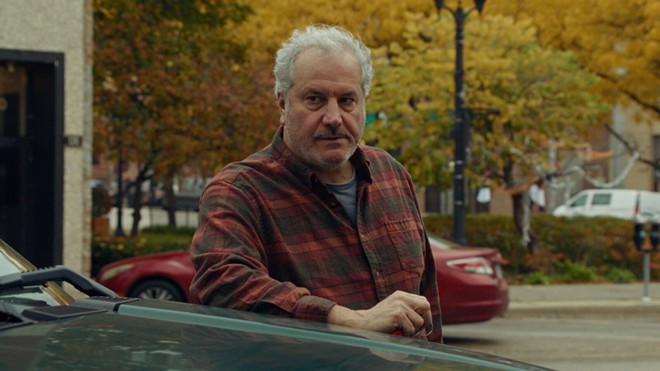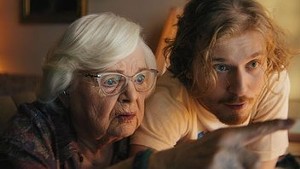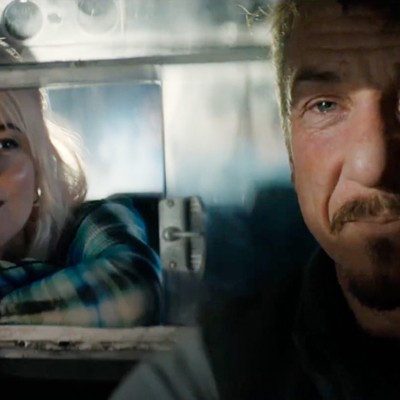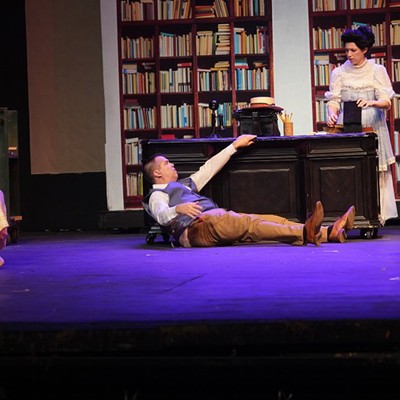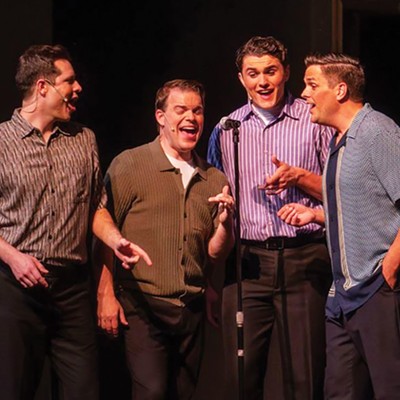Ghostlight a sincere beacon of hope
Kelly O’Sullivan and Alex Thompson’s Ghostlight is prime fodder for nitpickers. It has its narrative flaws, and I would be the first to admit that key moments would likely never happen. And yet, I’m glad that I haven’t gotten so old and bitter that I take a hypercritical look at all that comes my way. If so, I would be robbing myself of gifts like those bestowed by this magical, sincere, moving motion picture.
O’Sullivan’s script is a tantalizing, and at times, vexing construction. We aren’t immediately made aware of all that’s amiss with the Mueller family, but it is readily apparent that a cataclysmic event has occurred that has torn them asunder. Dan (Keith Kupferer) is a construction worker who obviously has the weight of the world on his shoulders. Preoccupied at work, he’s reticent to talk about what’s bothering him. His wife, Sharon (Tara Mullen), is unsteady as well, uncertain how to speak to her husband anymore, aware that one wrong word will likely set him off. Adding to their woes is their daughter Daisy’s behavior (Katherine Mallen Kupferer), the 15-year-old acting out at school, constantly suspended and on the verge of being expelled.
To reveal just what is wrong would be a disservice to O’Sullivan’s delicately constructed script, as well as anyone wise enough to give this film a chance. Surprisingly, the slow reveal is not frustrating but rather tantalizing, the tiny bits of information steadily dispensed, stoking our curiosity rather than breeding a feeling of being manipulated. Of course, there’s the matter of the Shakespearean subplot at play that proves an engaging distraction.
Due to circumstances easier seen than explained, Dan is reluctantly roped into a community theater production of Romeo and Juliet, given the role of, wait for it…Romeo. How a middle-aged man would end up in this circumstance is a reach but within the logic of the film, it’s an acceptable occurrence. More importantly, it’s necessary in driving home the theme of how theater and other art forms can be vital in the healing process. As he dives deeper and deeper into the role, it proves to be a cathartic experience for Dan, his growing understanding of Romeo’s motivation and actions allowing him to come to terms with much that is bothering him. And once his daughter joins the cast, they find a way to communicate, healing the rift that’s grown between them.
That Kupferer, Mallen and their daughter are cast as the family on screen give the Mueller’s interactions an added weight that proves invaluable. Their conversations are effortless, lived-in, the tension between them palpable, their interactions organic. The hurt and anger the characters harbor towards one another is obvious, but the trio is aware that the love they feel for each other can never be wholly obscured if the viewer is going to join them on the emotional rollercoaster they endure.
Mueller has the most difficult assignment, giving a finely calibrated performance, one in which restraint is the key. The success of the film depends on the awkwardness he conveys, as well as the ability to communicate with the audience by doing so very little. Our empathy for Dan is immediate, making the scene in which he finally expresses his pain a cathartic, galvanizing moment, the culmination of one of the finest screen performances of the year.
In the world of theater, a ghost light is a single light left burning in a dark theater. Some contend its function it to chase away any impish spirits that might mar a production, others say it is to keep these ghosts happy. For Dan, it becomes an unlikely beacon, one that provides a path to salvation for him and his family. O’Sullivan’s Ghostlight is one of the finest films of the year, a movie that rewards the viewer for accepting its offbeat premise with a genuinely moving reminder that emotional salvation is possible. In theaters.
Feisty Squibb brings Thelma to life
Like most people her age, Thelma doesn’t want to admit that she’s forgetful, that she’s lost a step or three or that there are times when she’s a bit scared and doesn’t understand things. As such, she’s reticent to ask her children for help. She doesn’t want to be a burden. Even worse, she can’t bear the embarrassment she feels when they come to her rescue, which only confirms their worries. In the back of her mind, her greatest fear is that she’ll be sent to an assisted living center, forgotten and left to waste away. No, it’s better to keep things to herself, particularly the fact that she’s been scammed out of $10,000.
Inspired by his own grandmother and her experiences, Josh Margolin’s Thelma is a character study of a fiercely independent nonagenarian, a woman who would rather eat glass than ask for help. As such, she embarks on an ill-advised adventure that takes her and an unwitting ally on a crosstown sojourn through some of the worst neighborhoods in Los Angeles. The purpose is to retrieve the money stolen from her. However, the real reason is to prove to herself that she’s still capable and aware enough to solve her own problems.
In the title role, June Squibb displays the kind of feistiness necessary to bring this determined woman to life. Ninety-four years young herself, there’s a twinkle in her eye throughout, wonderfully underscoring the determination of her character, a woman who’s worried about her grandson Daniel (Fred Hechinger), a rather aimless but good-hearted twenty-something who’s lost his girlfriend. He dotes on his grandmother, taking her side when his parents (Parker Posey and Clark Gregg) chide her for being forgetful, making sure she knows he doesn’t see her as a child.
As a result, she has a soft spot for him, so much so that when she gets a call saying Daniel has gotten into a fight, has been arrested and needs $10,000 sent immediately to a specific address so that he can be released, she dips into her secret stash and does so without thinking. She realizes too late she’s been duped and sets out to right this wrong. However, without a car, that’s going to be rather difficult, so she recruits the help of an old friend, Ben (Richard Roundtree), who happens to have a scooter they can ride.
Tooling around Los Angeles’ mean streets at no more than 30 miles per hour, confessions are made and fears revealed between the two, most of them revolving around their current physical and mental states. Margolin’s script gently examines the issues of growing old. Squibb and Roundtree provide a deft touch that doesn’t shortchange the serious nature of all that plagues those in their advanced years yet keeps things light enough so the film doesn’t get bogged down in despair.
Once the intrepid duo tracks down the perpetrator of the crime (Malcolm McDowell), Margolin attempts to connect his plight with that of the titular character, his excuse for his behavior that he too is struggling with age-related ailments. It’s a salient point but not developed enough to be convincing. Still, its Thelma’s tenacity that sticks with you, the film’s theme timely and, in a sense, eternal. Not taking advantage of the wisdom she and her peers have only ends up hurting us in the end, a valuable resource we neglect at our peril. In theaters.

